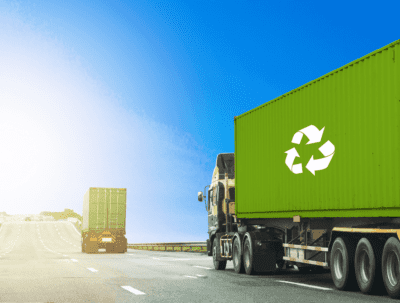The importance of sustainability in the supply chain moves beyond going green. A supply chain built on a sustainable platform creates more partnership opportunities because environmental responsibility is crucial for any industry today. Practising eco-awareness in every aspect of the business not only improves its reputation but further legitimises the organisation. At MatchBox Exchange, we recognise the value of sustainability and work towards building a better future for transport companies across the globe. Here’s how MatchBox Exchange makes the supply chain more sustainable MatchBox Exchange (MB) is a prime example of sustainability at work. It is the world’s first ‘open-market’ platform for the reuse and exchange of shipping containers between landside logistics companies. The platform works by matching parties with empty containers to those who need them. In a few simple steps, MatchBox Exchange solves the existing problem in the supply chain. For a long time, containerised trucks needed to drive through container parks. Empty Container Parks cost the industry both time and money for handling and storing empty containers. But with its 24×7 Instant Approval feature, MatchBox Exchange allows truckers to bypass the depot altogether and reuse or exchange their container anytime, anywhere. Now, transport companies can: (a.) Reduce excess carbon emissions that they…
Steer clear of depot congestion this holiday season with MatchBox Exchange
Industry experts anticipate heavy congestion at depots pre-holiday season, continuing through Christmas and into early 2022. The build-up of empty container stock is expected to reach critical levels making it difficult for supply chains to run efficiently during peak periods. In addition to transport costs, tolls, penalties, and waiting time, a sudden hike in demand-surge, and booking fees could overwhelm shippers and logistic interfaces on the land-side. With empty container parks running at full capacity, a spillover is certain. This would make needless truck trips to distant depots necessary, raising operational costs and hampering productivity. Transport operators are charged a notification fee each time they return or collect an empty container. Despite drivers stuck in traffic jams for long hours, missing time slots, this fee has seen a constant increase. Quarantine combined with peak seasons leaves logistics service providers with few alternatives as they can hit targeted departure dates only when they book well in advance — roughly 4 to 6 weeks prior. They are charged a fee on demand-surge, even as carriers limit intermodal bookings. The burden of these mounting costs often falls on them as forwarders and importers believe it is their job to avoid detentions while completing…


